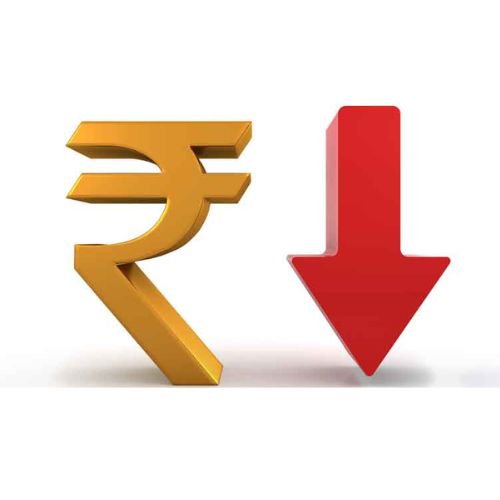After the Reserve Bank of India banned crypto transactions in 2018, the crypto sector ignited debate in India.
India has embraced the concept of cryptocurrency more quickly than many other countries. In India, it is estimated that over a hundred million people have joined the crypto club. According to several study estimates, India has the world’s largest crypto investor population. Because of the growing interest in cryptocurrencies, the government has been debating whether or not to regulate their mining and trading for some time. Despite initial reports that a complete ban on cryptocurrencies was being considered in India, official responses, particularly from the country’s central bank, have been mainly encouraging.
After the Reserve Bank of India (RBI) issued a restriction on crypto transactions supported by other lenders, the crypto sector aroused debate in India in 2018. The RBI had previously stated that the uncontrolled and untraceable character of cryptocurrencies posed severe threats to the country’s financial system.
The RBI lifted the restriction in 2021, citing a Supreme Court decision that did not favour a crackdown on crypto activities.
To allow crypto activities to continue, the Finance Ministry was tasked with drafting a bill outlining suggestions for regulating cryptocurrency activity in the country. Nirmala Sitharaman, the Finance Minister, is in charge of the procedure.
The year 2021 was supposed to usher in definitive legislation for the digital financial sector, but the plans kept getting postponed and never came to fruition. Here’s a timeline of what’s happened in the run-up to India’s much-anticipated crypto bill, which is scheduled to be tabled in Parliament’s forthcoming Budget Session.
September 2021: Authorities begin a conversation on taxing cryptocurrency profits.
The crypto bill did not make it to the list of announcements in Parliament’s Monsoon Session last year because it was still in the works. In September 2021, the finance ministry launched a new committee to look into whether the profits made from cryptocurrency trading could be taxed as capital gains or if they needed to be classed under a new tax category.
This group was given four weeks to provide its findings to the finance ministry, the facts of which have remained hidden from the public eye.
November 15, 2021: The government invites business professionals to discuss the crypto sector.
The Parliamentary Standing Committee on Finance summoned major crypto stakeholders to a meeting before the Parliament’s Winter Session last year.
The meeting’s topic was titled “CryptoFinance: Opportunities and Challenges,” and officials from many crypto-based companies were invited to attend, including CoinSwitch Kuber, CoinDCX, WazirX, and Crypto Assets Council (BACC), among others.
November 24, 2021: a crypto law will be introduced. Crashing price is on the parliamentary agenda. Charts
The crypto market plummeted on November 24 after India’s probable measures to outlaw the industry was revealed as an official agenda to be submitted before Parliament.
All “private cryptocurrencies” would be prohibited from operating in the country, according to the measure. There was no explanation at the time as to which crypto assets were designated as private. By definition, these were supposed to be private blockchain-based coins that allowed users to transact without exposing their data to the public. Monero, Particl, Dash, and Zcash are instances of private cryptocurrencies, according to a CNBC report. Bitcoin and Ether, two popular crypto monies, were designated as public cryptocurrencies.
November 30, 2021: Nirmala Sitharaman offers a new briefing on the crypto bill.
The Union Minister for Finance, Nirmala Sitharaman, responded to a series of questions in the Rajya Sabha by saying that the crypto law would be introduced when the Cabinet cleared it. Sitharaman also stated that the government has been warning individuals about the “high risk” nature of cryptocurrencies.
Without going into further detail, the finance minister stated that the measure did not intend to legalize Bitcoin as a form of payment in India, as El Salvador did in September 2021.
December 7, 2021: More details on crypto bill emerge
The crypto law, according to Reuters, proposes a “wide restriction on any operations by any individual on mining, creating, holding, selling, (or) trading” in digital currencies as a “medium of exchange, store of value, and a unit of account.”
Any violation of these regulations would be “cognizable,” according to a bill summary read by Reuters. It essentially meant that violators may face a “non-bailable” charge if they were caught.
December 23, 2021: The Winter Session of Parliament closes on December 23, 2021, with no announcement on a crypto law.
The crypto bill did not make it to the Parliamentary table last year because it was awaiting cabinet approval. According to media reports at the time, the government is gathering information on how other countries plan to regulate cryptocurrencies before making a final decision, citing sources.
India’s crypto laws: Where do we stand now?
The Union Budget for the years 2021-2022 will be presented on February 1 by the finance minister. The crypto law may or may not be a good topic for a speech.
There are several reasons for the necessity to bring the crypto sector under government control. Cryptocurrency transactions are untraceable and vulnerable to fraud.
Prime Minister Narendra Modi has often urged countries to adopt a common approach to crypto-related issues.
Meanwhile, in India, the sector is growing and becoming more popular. Indians are still interested in cryptocurrencies, as well as other blockchain-based sectors such as NFTs and the metaverse.















